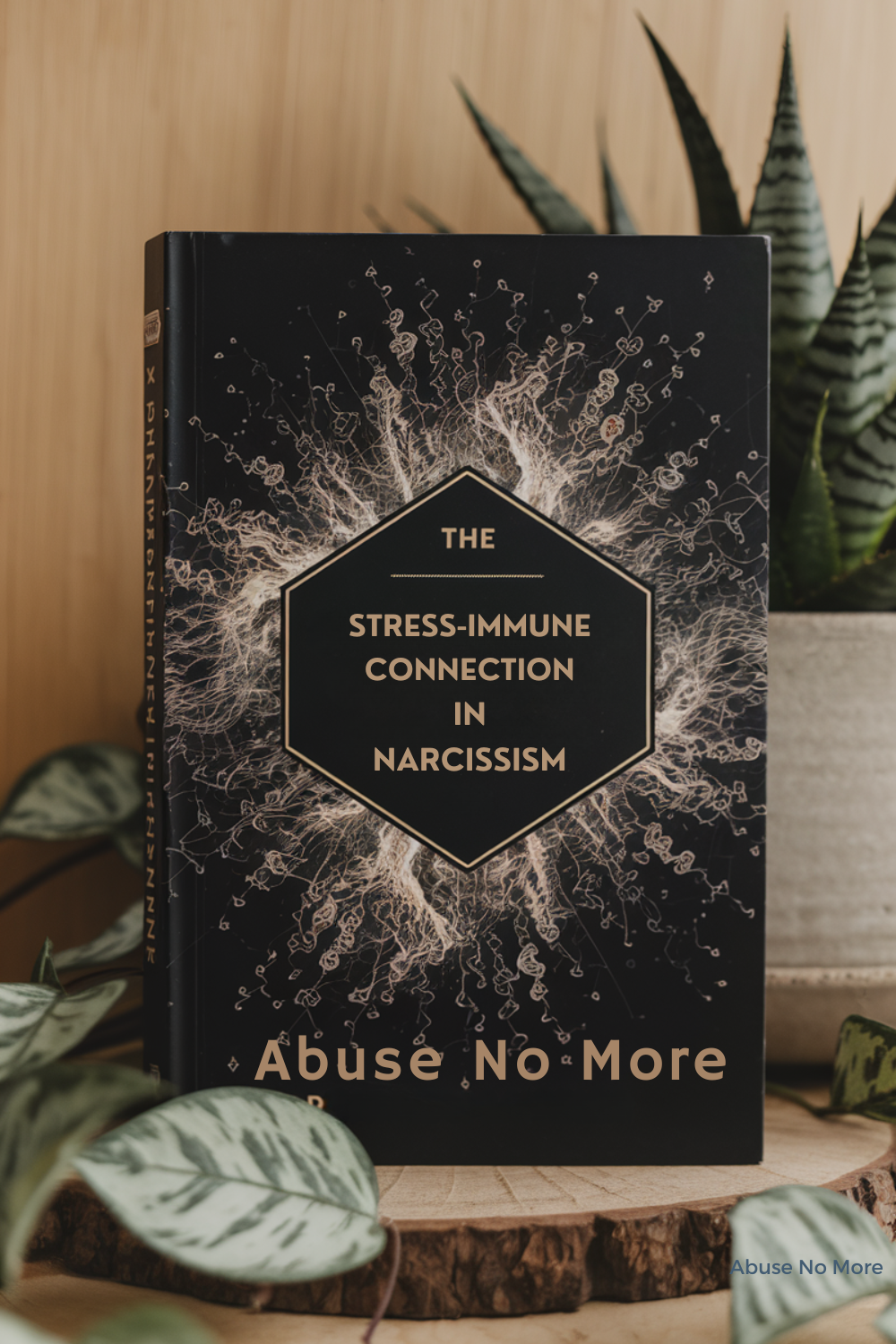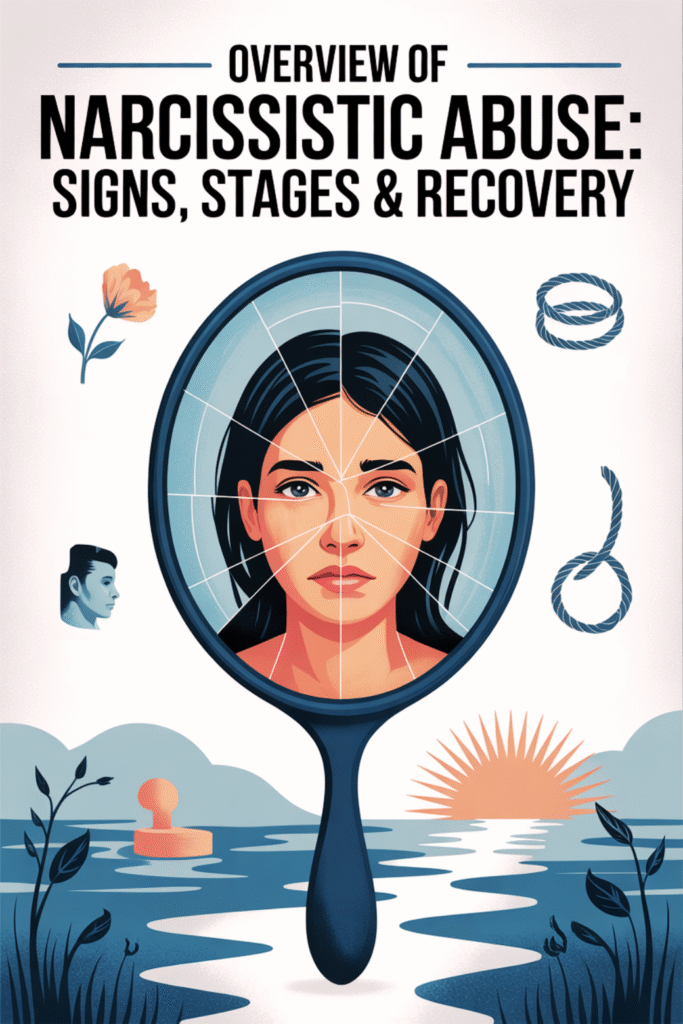Now Reading: Narcissism and Immune System Functioning
- 01
Narcissism and Immune System Functioning

- Home
- Narcissism Psychology
- Narcissism and Immune System Functioning
Narcissism isn’t just a personality trait—it may also have biological roots that influence immune system functioning.
Recent research suggests that narcissistic traits, particularly grandiose and vulnerable narcissism, may correlate with distinct immune responses. From cytokine activity to stress regulation, the link between narcissism and the immune system is more profound than most realize.
Understanding this connection can help explain why narcissistic individuals often experience chronic health issues—and why victims of narcissistic abuse frequently report stress-related illnesses.
This article explores the latest scientific findings, breaks down the immune-narcissism connection, and examines how these insights could impact both mental and physical health.
🧠 Understanding Narcissism: The Psychological Framework
Narcissism exists on a spectrum, ranging from healthy self-confidence to full-blown Narcissistic Personality Disorder (NPD).
The Two Core Subtypes of Narcissism
1. Grandiose Narcissism:
✅ Extroverted, confident, and dominant
✅ Charismatic but emotionally fragile
✅ Constant need for admiration and validation
People with grandiose narcissism often appear charming and self-assured. However, their confidence is shallow, and they rely on external praise to maintain their inflated self-image.
2. Vulnerable Narcissism:
✅ Hypersensitive, defensive, and insecure
✅ Socially withdrawn but obsessed with image
✅ Prone to anxiety, depression, and chronic stress
Vulnerable narcissists tend to internalize their emotions. They may experience higher levels of distress, constantly ruminate over perceived slights, and have an exaggerated response to stressors—a key factor in their immune system dysfunction.
💡 The Biological Connection: Narcissism and the Immune System
The immune system isn’t just about fighting infections—it’s also a mirror of our psychological states. Emotional stress, social dynamics, and personality traits can all influence immune functioning in surprising ways.
🔬 Key Findings from a 2022 Study (Cheng & Tracy, Psychoneuroendocrinology):
📌 Grandiose narcissists showed lower pro-inflammatory cytokines (e.g., IL-6, TNF-α), indicating a suppressed immune response.
📌 Vulnerable narcissists exhibited higher inflammation markers, linked to chronic stress and rumination.
👉 Translation? Grandiose narcissists may be less prone to inflammation-related diseases but more susceptible to infections due to immune suppression. Meanwhile, vulnerable narcissists may suffer from chronic inflammation, leading to autoimmune issues, heart disease, and other long-term health risks.
🔬 The Immune System Explained: A Quick Primer
Your immune system has two primary components:
1️⃣ Innate Immunity (Your Body’s First Line of Defense)
• Includes skin, mucous membranes, and white blood cells
•Provides fast but non-specific protection
2️⃣ Adaptive Immunity (Your Body’s Learned Defense)
• Involves T-cells, B-cells, and antibodies
• Develops long-term immunity to specific threats
When someone experiences chronic stress, their immune system can become dysregulated, leading to either overactivity (inflammation) or suppression (higher risk of infections).
🛑 The Role of Cytokines in Narcissistic Stress Responses
Cytokines are proteins that act as immune system messengers. They regulate inflammation, stress responses, and healing.
📌 Pro-Inflammatory Cytokines (IL-6, TNF-α) – Trigger inflammation, fight infections but can cause chronic disease if overactive.
📌 Anti-Inflammatory Cytokines (IL-10, TGF-β) – Reduce inflammation, but excess suppression weakens immune defenses.
What This Means for Narcissists:
• Grandiose narcissists have lower inflammation markers, making them more vulnerable to infections.
• Vulnerable narcissists have higher inflammation markers, increasing their risk of autoimmune diseases, heart disease, and chronic pain disorders.
🧠 The Stress-Immune Connection in Narcissism
The HPA Axis: How Narcissists Process Stress Differently
The hypothalamic-pituitary-adrenal (HPA) axis controls cortisol release, the hormone responsible for stress regulation.
📌 Grandiose narcissists have a stronger HPA axis, leading to lower inflammation but weaker immune function.
📌 Vulnerable narcissists have a dysregulated HPA axis, leading to chronic inflammation, fatigue, and burnout.
🔬 A 2021 study found that people with high vulnerable narcissism scores had elevated cortisol levels, suggesting constant stress activation—a major cause of immune dysfunction.
🧬 Evolutionary Perspective: Why Does This Happen?
From an evolutionary standpoint, narcissistic traits may have developed as biological survival mechanisms.
📌 Grandiose narcissism may have evolved to promote leadership and mating success, even at the cost of immune resilience.
📌 Vulnerable narcissism may be a defensive adaptation, where chronic stress heightens immune vigilance in response to early-life trauma.
🚀 Translation? The immune system adapts to personality traits in ways that can impact long-term health and disease susceptibility.
🌐 Societal Implications: Narcissism in the Modern World
📌 Social media fuels grandiose narcissism by rewarding superficial validation.
📌 Childhood trauma strongly correlates with vulnerable narcissism and chronic inflammation.
📌 Workplace stress can amplify narcissistic traits, further disrupting immune function.
If narcissism affects immunity, could modern society be making us sicker?
🩺 Clinical Implications: Mental and Physical Health Risks
Key Health Risks of Narcissism-Linked Immune Dysfunction:
1️⃣ Chronic Inflammation – Higher risk of heart disease, diabetes, and autoimmune disorders in vulnerable narcissists.
2️⃣ Immune Suppression – Grandiose narcissists may ignore symptoms and delay medical treatment.
3️⃣ Stress-Related Illnesses – Narcissistic abuse survivors often report chronic fatigue, IBS, and fibromyalgia due to immune system dysregulation.
📖 Case Study: Sarah’s Story
Sarah, a 34-year-old marketing professional, appeared confident and successful. But beneath her outgoing exterior, she struggled with hypersensitivity, anxiety, and chronic fatigue.
After months of unexplained illness, Sarah’s blood tests revealed elevated pro-inflammatory markers.
📌 Psychological evaluation diagnosed her with vulnerable narcissism, linked to childhood trauma.
Through therapy, self-awareness, and stress reduction techniques, Sarah reduced her inflammatory response—and her health improved within six months.
⚖️ Criticisms & Limitations of Current Research
🔴 Self-Reporting Bias – Many studies rely on subjective participant data.
🔴 Small Sample Sizes – More large-scale, diverse studies are needed.
🔴 Causality Challenges – Does narcissism cause immune changes, or do immune issues predispose narcissistic traits?
🚀 Future Research Directions
🔬 Neuroimmunology of Narcissism – How does the brain-immune connection affect narcissistic traits?
💊 Therapeutic Interventions – Could anti-inflammatory treatments help regulate vulnerable narcissism?
🌎 Cultural Variations – Do different cultures influence the narcissism-immune relationship?
🔔 Practical Takeaways for Survivors
✅ Track Your Stress Levels – Notice how interacting with narcissists affects your health.
✅ Strengthen Your Immune System – Reduce inflammation with exercise, mindfulness, and balanced nutrition.
✅ Stay Informed – Knowledge is power—understanding narcissistic manipulation can help you break free.
🧐 FAQ: Narcissism & the Immune System
1️⃣ How does narcissism affect the immune system?
Narcissism impacts the immune system through stress regulation and inflammation. Grandiose narcissists tend to have lower inflammation but weaker immune defenses, making them more prone to infections. Vulnerable narcissists, on the other hand, experience chronic stress and high inflammation, increasing their risk of autoimmune diseases and heart conditions.
2️⃣ Why do grandiose narcissists have a suppressed immune response?
Grandiose narcissists have lower pro-inflammatory cytokines, which means their bodies don’t react as strongly to infections or inflammation. This could be due to their overactive HPA axis (stress system), which keeps inflammation low but reduces immune resilience.
3️⃣ Why are vulnerable narcissists more prone to chronic illness?
Vulnerable narcissists experience high levels of stress and rumination, leading to chronic inflammation. This constant state of fight-or-flight can result in autoimmune diseases, heart disease, and fatigue-related conditions like fibromyalgia.
4️⃣ Can narcissistic abuse weaken the immune system of victims?
Yes! Long-term exposure to narcissistic abuse can cause chronic stress, leading to immune dysfunction. Many survivors report digestive issues, chronic fatigue, migraines, and autoimmune conditions due to prolonged stress and trauma.
5️⃣ Does childhood trauma contribute to both narcissism and immune issues?
Absolutely. Studies show that childhood trauma can lead to both vulnerable narcissism and immune dysregulation. Early stress can permanently affect the HPA axis, leading to lifelong stress sensitivity and increased risk of chronic illness.
6️⃣ Can improving mental health help fix immune problems?
Yes! Reducing stress, healing trauma, and practicing self-care can help regulate the HPA axis and immune system. Techniques like therapy, mindfulness, exercise, and anti-inflammatory diets can improve both mental and physical health.
7️⃣ What’s the best way to protect my immune system from narcissistic stress?
✅ Limit exposure to toxic individuals—Use the IMC Method™ (Identify, Minimize, Control).
✅ Prioritize stress management—Meditation, exercise, and deep breathing.
✅ Get enough sleep—Poor sleep weakens immunity.
✅ Eat an anti-inflammatory diet—Reduce sugar, processed foods, and stress-inducing substances.
✅ Seek support—A strong support system can counteract the health effects of narcissistic abuse.
🔥 7 Things That Will Happen If You Keep Putting Up with Narcissistic Behavior
If you keep tolerating narcissistic abuse, the damage isn’t just emotional—it affects your mental health, physical well-being, and entire future. Here’s what happens when you let a narcissist stay in your life:
1️⃣ Your Self-Worth Will Crumble
At first, you might justify their behavior. But over time, constant gaslighting, blame-shifting, and emotional manipulation will make you doubt yourself. You’ll second-guess your decisions, lose confidence, and feel like you’re never “good enough.”
🚨 Reality check: No one deserves to feel unworthy—especially not because of a toxic person.
2️⃣ You’ll Develop Anxiety, Depression, or Chronic Stress
Living in a constant state of manipulation puts your body in fight-or-flight mode 24/7. This can lead to:
✅ Anxiety & Panic Attacks – You never know what mood they’ll be in.
✅ Depression & Hopelessness – They isolate you from support.
✅ PTSD Symptoms – Narcissistic abuse is psychological warfare.
🔥 The longer you stay, the more your mental health will suffer.
3️⃣ Your Immune System Will Suffer
Stress doesn’t just affect your emotions—it weakens your immune system. If you stay in a toxic relationship:
✅ You’ll get sick more often (colds, flu, infections).
✅ You may develop chronic conditions (fibromyalgia, IBS, migraines).
✅ Your body will constantly produce stress hormones, increasing inflammation.
🚨 Long-term narcissistic abuse can literally make you physically ill.
4️⃣ Your Boundaries Will Disappear
Narcissists train you to accept mistreatment. If you keep allowing their behavior, your boundaries will weaken, and soon:
❌ You’ll say yes when you mean no.
❌ You’ll tolerate things you once swore you never would.
❌ You’ll be exhausted from always trying to keep the peace.
🔥 If you don’t set boundaries, they’ll take everything.
5️⃣ You’ll Attract More Narcissists
The longer you tolerate narcissistic behavior, the more you become conditioned to it. This can make you:
✅ More vulnerable to future narcissists (because it feels familiar).
✅ Drawn to toxic relationships that repeat the same cycle.
✅ Less likely to recognize red flags in new people.
🚨 Narcissists can sense who they can manipulate. The cycle doesn’t stop until YOU break it.
6️⃣ You’ll Waste Years of Your Life
The longer you stay, the harder it gets to leave. Before you know it:
❌ Months turn into years.
❌ You lose time you can’t get back.
❌ You wake up one day and wonder how you let it go this far.
🔥 Don’t let them steal your best years. The longer you wait, the more they take.
7️⃣ You’ll Forget Who You Are
Narcissists strip away your identity—until you don’t even recognize yourself anymore.
❌ Your hobbies? Forgotten.
❌ Your dreams? Pushed aside.
❌ Your personality? Faded, because you’ve spent so much time walking on eggshells.
🚨 One day, you’ll realize you became a version of yourself you never wanted to be. But the good news? You can get YOU back.
🚀 The Bottom Line: You Deserve Better
Putting up with narcissistic behavior won’t make them change—it’ll only destroy YOU. The best thing you can do? Take your power back.
👉 Start with the IMC Method™ (Identify, Minimize, Control).
✅ Identify the behavior.
✅ Minimize interactions.
✅ Control your response—take your life back.
🔗 Ready to break free? Get the tools to reclaim your life at abusenomore.com. 🚀🔥
🔥 7 Ways to Fix It & Take Your Power Back from Narcissistic Behavior
If you’ve been stuck in a cycle of narcissistic manipulation, you’re not powerless. Here’s how to break free, heal, and rebuild your life—step by step.
1️⃣ Recognize the Manipulation & Call It What It Is
Narcissists thrive on keeping you confused. They twist reality, blame-shift, and make you feel like the problem.
✅ Reality check: You’re NOT overreacting. It’s NOT your fault. Their behavior is intentional and destructive.
🚨 First step? Name the game. Once you see it clearly, you can stop playing.
2️⃣ Set Rock-Solid Boundaries (And Enforce Them)
Narcissists HATE boundaries because they can’t control people who have them. They will:
❌ Guilt-trip you.
❌ Push past your “No.”
❌ Test you to see if you’ll back down.
✅ Fix it: Be clear, be firm, and don’t explain yourself.
Example: “I don’t tolerate disrespect. If it happens again, I’m done.” (Then follow through.)
🔥 Weak boundaries let them in. Strong boundaries shut them down.
3️⃣ Stop Expecting Them to Change
Waiting for a narcissist to have a breakthrough? It’s not coming.
❌ They won’t wake up one day and “get it.”
❌ They won’t suddenly develop empathy.
❌ They WILL keep manipulating as long as you allow it.
✅ Fix it: Accept that this is who they are. Once you stop expecting change, you can start focusing on YOUR healing.
🚨 You can’t fix them, but you CAN fix the damage they caused.
4️⃣ Cut Off Their Power Over You (Mentally & Emotionally)
Narcissists thrive on control—but here’s the truth: They only have as much power as you give them.
✅ Stop reacting emotionally—this fuels their game.
✅ Detach from their approval—you don’t need it.
✅ Recognize their patterns—once you see them, they lose their grip.
🔥 Fix it: Start responding like they’re just a boring TV show you don’t care about. No reaction = no fuel.
5️⃣ Create an Exit Plan (Even If You’re Not Ready to Leave Yet)
If you’re dealing with a narcissist in a relationship, workplace, or family, leaving may take time. But that doesn’t mean you can’t start planning NOW.
✅ Fix it:
• Start saving money (if needed).
•Find a support system (therapist, coach, trusted friends).
•Gather proof (if legal matters are involved).
🚨 Even if you stay for now, knowing you have an escape plan gives you back control.
6️⃣ Rebuild Your Self-Worth & Identity
Narcissistic abuse makes you forget who you are. Time to take yourself back.
✅ Fix it:
• Reconnect with old hobbies.
• Do things for YOU, not for validation.
• Surround yourself with people who remind you of your worth.
🔥 You’re not who they said you were. You are who YOU decide to be.
7️⃣ Learn the IMC Method™ (Identify, Minimize, Control)
This 3-step method helps you regain control and shut down narcissistic manipulation:
✅ Identify – Spot the manipulation before it affects you.
✅ Minimize – Reduce their influence over your thoughts, emotions, and life.
✅ Control – Take your power back by focusing on YOUR next move—not theirs.
🔥 Bottom Line? You CAN Fix It.
Narcissists don’t change, but you do. You can heal, rebuild, and come out stronger than ever.
Start today.
🔥 7 Ways to Thrive After Narcissistic Abuse & Reclaim Your Life
Breaking free from a narcissist is just the beginning. Thriving means rebuilding yourself, rediscovering joy, and becoming stronger than ever. Here’s how to rise above the damage and create the life you deserve.
1️⃣ Shift from Survival Mode to Growth Mode
Escaping a narcissist leaves you in survival mode—always on edge, second-guessing yourself, and waiting for the next attack. But thriving means flipping the script and focusing on your own growth.
✅ Fix it:
• Stop living in reaction to them—start living for YOU.
•Shift your mindset from “I survived” to “I’m building something better.”
• Focus on the future, not the past.
🚀 You didn’t escape just to survive. You escaped to THRIVE.
2️⃣ Rebuild Your Confidence (One Small Win at a Time)
Narcissists tear down your self-worth so you won’t leave. Now, it’s time to rebuild what they tried to destroy.
✅ Fix it:
•Set tiny, achievable goals (even if it’s just “drink more water” or “go for a walk”).
•Celebrate every win—you’re proving to yourself that you CAN.
•Stop waiting for perfection. Confidence comes from ACTION.
🔥 Rebuilding your self-worth starts with proving to yourself that you CAN.
3️⃣ Set Unbreakable Boundaries & Enforce Them
Thriving means never letting toxic people back in. If you don’t set boundaries, you’ll fall back into the same patterns.
✅ Fix it:
• Say NO without explaining yourself.
• Cut off toxic people unapologetically.
• Protect your peace like your life depends on it—because it does.
🚨 If someone doesn’t respect your boundaries, they don’t respect YOU. Period.
4️⃣ Redefine Who You Are (Without Them)
You spent so much time walking on eggshells, molding yourself to fit their needs. Now it’s time to figure out who YOU really are.
✅ Fix it:
• Ask yourself: “What do I actually love? What excites me?”
•Try new hobbies, take a class, or explore things you never had time for.
• Remember: You are more than what they made you believe.
🔥 Rebuild yourself—not as a reaction to them, but as a reflection of YOU.
5️⃣ Surround Yourself with People Who Lift You Up
Narcissists isolate you so you feel dependent on them. Thriving means finding healthy, uplifting relationships that support your growth.
✅ Fix it:
•Cut off energy-drainers—if someone makes you feel small, they’re not your people.
•Find a supportive tribe—whether it’s friends, a therapist, or an online community.
• Learn to accept healthy love—real love feels safe, calm, and empowering.
🚀 You don’t have to heal alone. Find your people.
6️⃣ Prioritize Your Physical & Mental Health
Narcissistic abuse wrecks your nervous system, leaving you exhausted, anxious, and sick. Thriving means taking your health back.
✅ Fix it:
•Regulate your nervous system with deep breathing, meditation, or yoga.
•Eat for healing—reduce inflammation with whole foods.
• Move your body—exercise rebuilds strength, confidence, and energy.
🔥 When your body is strong, your mind follows. Prioritize your health.
7️⃣ Create a Life That Excites You
The ultimate revenge? Living a life so good, they become irrelevant.
✅ Fix it:
•Make a vision board—what does your dream life look like?
•Set goals that inspire you—career, travel, relationships, hobbies.
•Wake up excited—every day is a chance to build something new.
🚀 Narcissists drain. You create. Build the life you deserve.
🔥 The Bottom Line: You Deserve More Than Just “Getting By”
Breaking free is step one. Thriving is step two. It’s time to:
✅ Own your worth 💪
✅ Protect your peace 🛡️
✅ Build a future so good, your past looks like a bad dream 🚀
💬 “Here’s what I wish someone told me when I was in it…”
I lost over 80 pounds, my blood pressure went from stroke level to completely normal, and my psoriasis—which covered 70% of my body, making me feel like I was literally on fire—has almost completely cleared. Now? Just a few small spots here and there.
I didn’t realize how much narcissistic abuse was attacking my immune system, my skin, my energy—everything. I thought I was just “stressed.” But stress doesn’t make you sick every day. Stress doesn’t make your body feel like it’s shutting down.
If you’re constantly sick, exhausted, or feel like your body is breaking down, it’s not just in your head. Your immune system is taking the hit. And the second you take your power back, your body will start healing, just like mine did.
📢 Join the Mission: Educate & Empower
🔗 Visit abusenomore.com for quizzes, resources, and expert insights.
Because when you understand the science behind manipulation, you can break free—mind, body, and soul. 💥



















